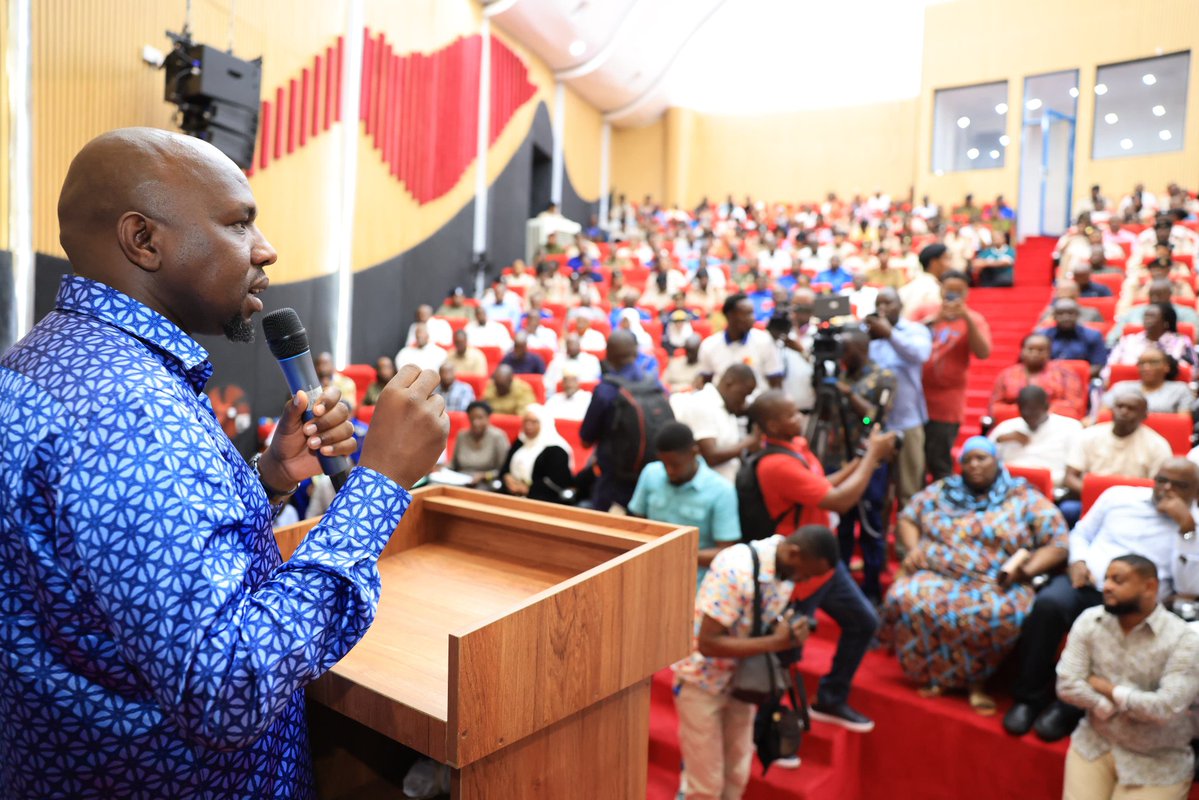Jukwaa la Usalama is the New Frontline in Kenya’s Security Transformation
Kenya is entering a new era of citizen-centered security – and, Jukwaa la Usalama is anchoring the movement.
Spearheaded by the Ministry of Interior and National Administration in collaboration with the National Police Service and strategic civil society partners, Jukwaa la Usalama represents a seismic shift in how the country approaches safety, reform, and public trust.
This is a structural overhaul rooted in honest conversation, bold accountability, and deep community engagement.

For years, the call for security reforms has echoed across town halls, newsrooms, and civil society spaces. Yet, the gap between policy and the pulse of the people has remained stubbornly wide.
Jukwaa la Usalama changes that by creating a national platform – both physical and ideological – where all voices count and every opinion matters.
It is here that citizens meet their protectors not across barriers, but around the same table.
From the outset, Jukwaa la Usalama set out with a clear mission: to deepen public trust in security institutions while fostering inclusive, people-driven approaches to safety.
Through forums held in diverse counties – Garissa, Nakuru, Kilifi, Kisumu, among others – the initiative has broken past bureaucratic walls and reached into the lived realities of ordinary Kenyans.
These aren’t just listening sessions. They are active spaces of reform, where citizens interrogate policies, question practices, and demand results.
Community Ownership
The success of any reform lies in public ownership – and this is where Jukwaa la Usalama hits hardest.
For the first time in years, community voices are shaping safety priorities.
From youth-led barazas addressing violent extremism in the Coast region, to women-led forums challenging gender-based violence in the Rift Valley, to elders speaking candidly about state-community trust deficits in the North, the conversations have been raw, fearless, and long overdue.
These voices are forming the foundation for actionable plans.
Already, county-based security task forces are integrating citizen proposals into their workstreams, while police leadership has committed to feedback mechanisms that enhance transparency and accountability.
What is The Significance of This?
In an era where misinformation, extremism, and rising inequality continue to threaten peace and cohesion, rebuilding the social contract between the state and the citizen is not optional – it’s urgent.
Jukwaa la Usalama responds to this urgency not by imposing rules but by co-creating solutions.
And the impact is tangible.
In Kilifi, early warning systems for community conflict have been piloted and adopted. In Kisumu, youth groups once labeled as security threats are now active partners in neighborhood watch programs.
In Garissa, the forums have bridged years of mistrust between state actors and border communities, paving the way for more culturally-sensitive law enforcement.

It’s Time for this Reform
What sets Jukwaa la Usalama apart is its refusal to treat security as a one-way street.
It understands that security is not about presence alone – it’s about presence with purpose. It’s not about patrolling spaces, but about owning them together, protecting them collectively, and healing past harms systemically.
The campaign is not just opening dialogue; it’s reshaping institutional behavior.
It’s influencing training curriculum, challenging discriminatory practices, and encouraging officers to see citizens as allies, not adversaries.
It’s centering empathy, trust, and service – qualities too long missing in our security narrative.
What’s in The Future?
As the forums expand nationwide, the challenge now is sustainability. It must grow into policy frameworks, be embedded in county budgets, and be institutionalized in how we define security going forward.
Because ultimately, Jukwaa la Usalama is not a moment. It’s a movement.
And in that movement lies Kenya’s future – one where safety is no longer enforced through fear, but built through trust.
